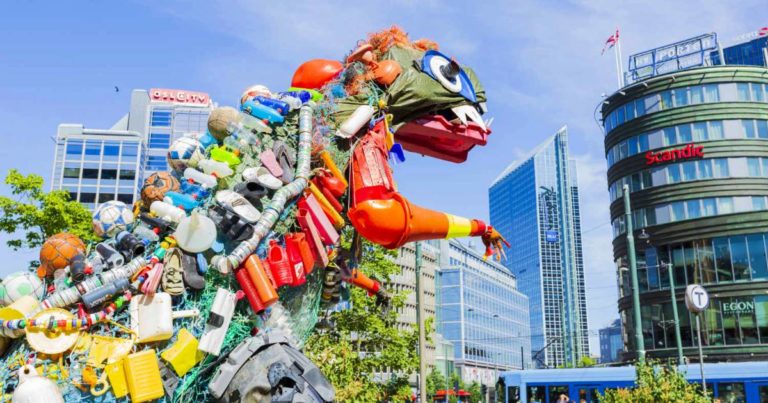Proper waste separation is essential to ensure that recycling is effective and sustainable. Often, the challenge of recycling lies not only in the available infrastructure, but also in how each of us contributes to the process. If you want to know more how to help For recycling to occur more efficiently, understanding the importance of separating waste is a good start. Even in the absence of selective collection in many municipalities, collaborating in the correct separation of materials can make a big difference.

How to Separate Garbage Efficiently
To effectively assist in the recycling process, it is crucial to know how to separate waste correctly. Proper separation begins with dividing waste into main categories:
- Dry Waste: Include recyclable materials such as packaging, batteries, tires and paper.
- Wet Waste: Composed of items such as coffee grounds, eggshells and leaves.
- Sanitary Waste: Includes bathroom waste such as used toilet paper, sanitary pads, and disposable diapers.
Reducing the amount of wet waste and adopting practices that save money and resources can be made easier by making full use of food, for example.
Dry Waste Care
After separating dry waste, it is important to prepare it for recycling effectively:
- Cleaning of Materials: It is not necessary for recyclable materials to be completely clean, but a basic cleaning helps.
- Crushing Packaging: Reduce the volume of packaging by crushing it. This makes it easier to transport and recycle.
- Secure Packaging: Separate glass and paper. Glass can hurt collectors and paper is easily contaminated, which can compromise recycling.
- Disposal of Batteries and Lamps: These materials may be dangerous and must be taken to specific collection points.
Collaborating with the Collection and Disposal of Recyclables
While the lack of recycling collection in many places can be disheartening, you can still help ensure your recyclables don’t go to waste:
- Check with the City Hall: Check with local administration about selective collection and recycling initiatives. If there is an omission, criticism and reporting may be necessary.
- Support for Collectors: Waste pickers play a crucial role in the recovery and sale of recyclable materials. Collaborating with these workers is an effective way to ensure that your material is reused.
- Welfare Entities and Scrap Metal Dealers: Many organizations and scrap yards accept recyclable materials and may be interested in disposing of them.
Implementing Selective Collection Systems
For locations with high waste production, such as residential buildings, condominiums and businesses, implementing a customized selective collection system is an effective solution. A well-structured system can optimize waste management, reduce environmental impact and promote sustainable practices among occupants and employees. To ensure that this system is effective and sustainable in the long term, it is essential to seek guidance from recycling experts.
Recycling consultants can help you plan and implement a recycling system tailored to the specific needs of your location. They can provide guidance on how to best separate and store waste, how to choose the right containers, and how to train users to maximize collection efficiency. Active collaboration between everyone involved—from building or business management to residents and employees—is essential to the system’s success.
Careful planning includes defining clear procedures, selecting recycling service providers and implementing a collection schedule. In addition, it is important to establish communication channels for ongoing feedback and necessary adjustments. With the support of experts and the engaged participation of all stakeholders, implementing a selective collection system can transform waste management and contribute significantly to environmental sustainability.
Transforming Habits and Impacting the Environment
Our entire relationship with the environment begins with changing our habits. By helping to separate and dispose of waste, you contribute not only to more effective recycling, but also to preserving the planet. Remember, small actions have a big impact when carried out together. Therefore, how to help It is collaborate Recycling is not just a responsibility, but an opportunity to make a difference.
Check out other interesting facts about recycling clicking here.
Learn how to make art by recycling, Click here.




I help and you
I think it's a good idea
I loved the idea. Let's help the environment
I'm glad you liked it! Let's clean up Brazil!
I really liked the idea. It's good if everyone does it like that, but if no one helps, the world will become very polluted and we will all die.
right?
Good Idea On My Street Everyone Helps The Environment And The Damn Egyptian Edigi
One day I will change the world!!!! For the better of course lol'